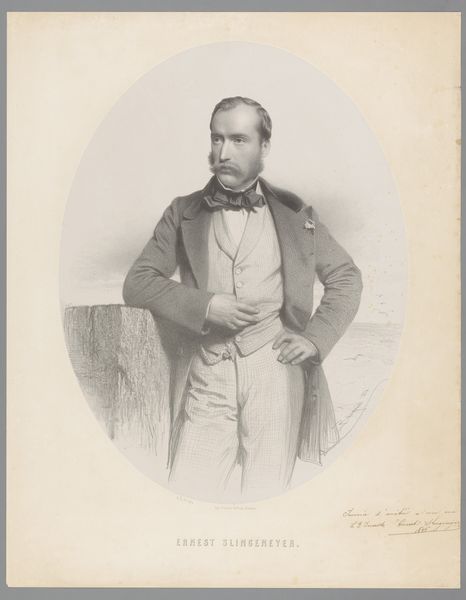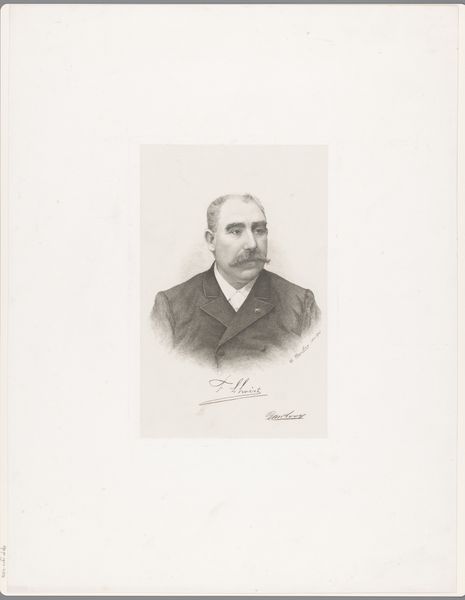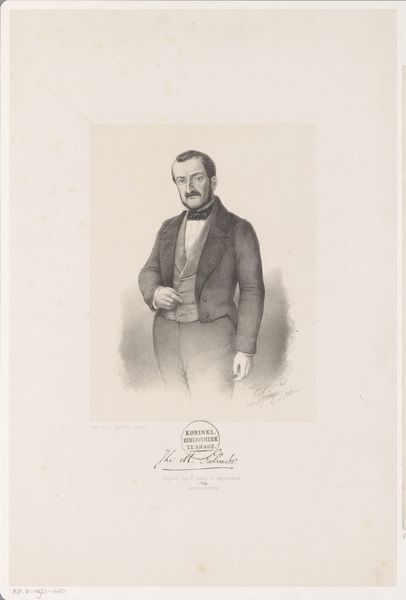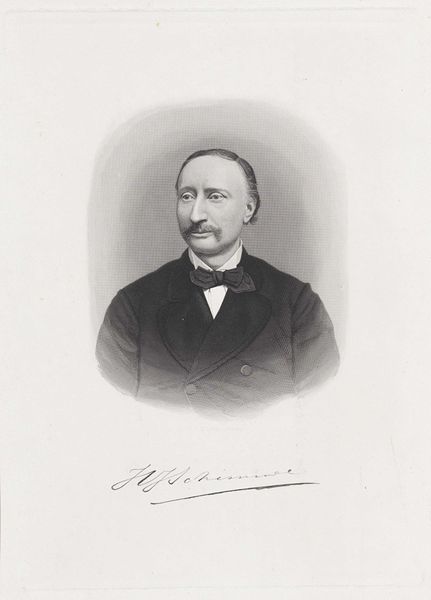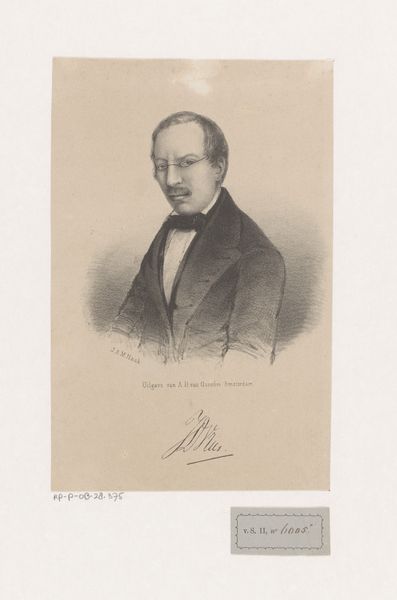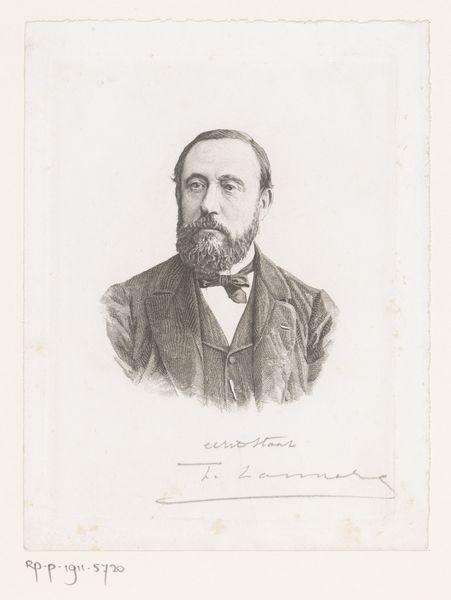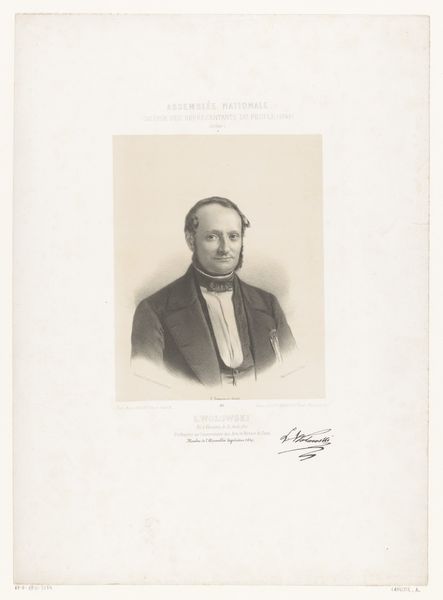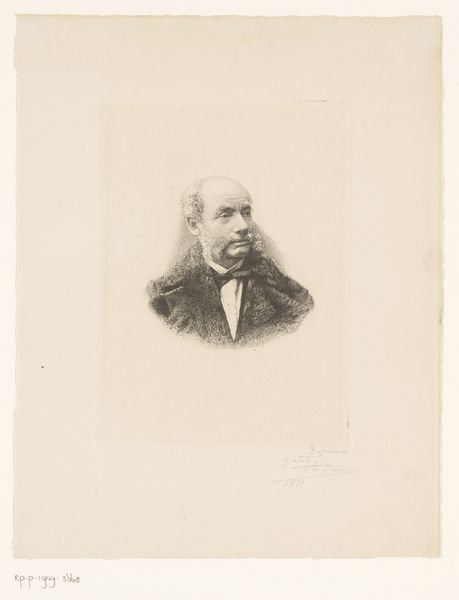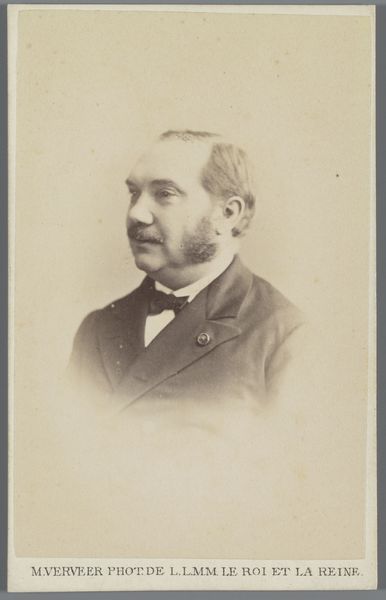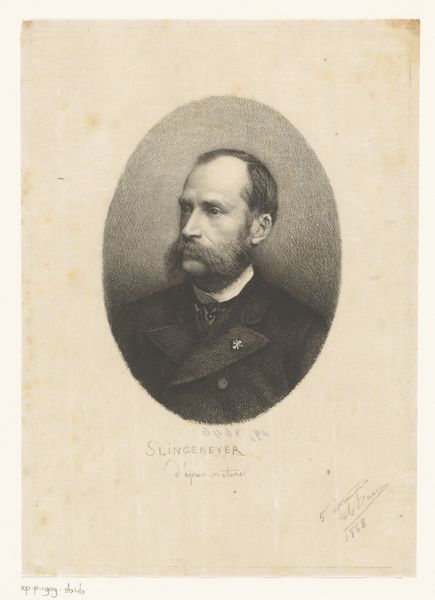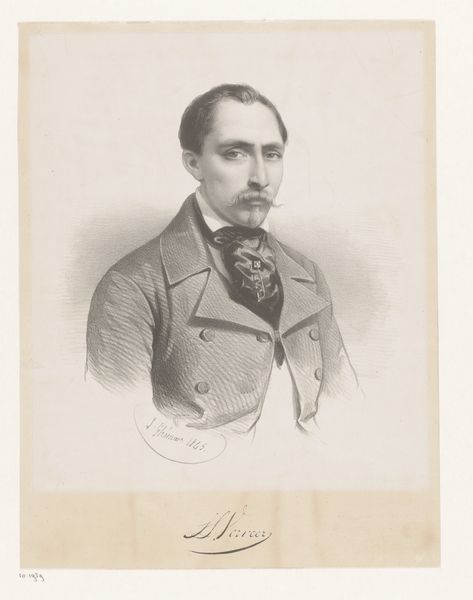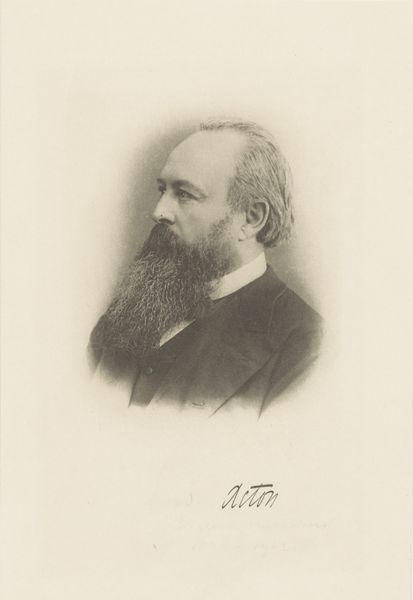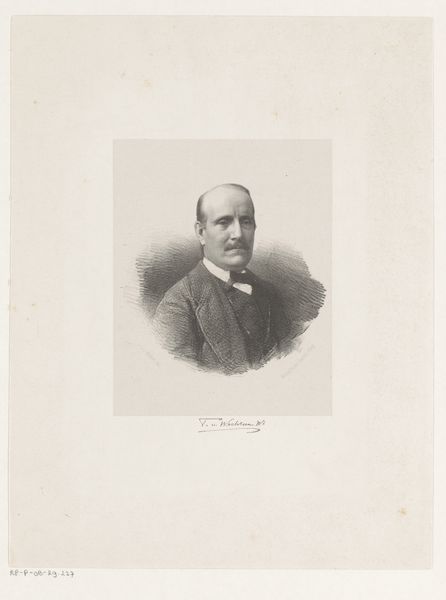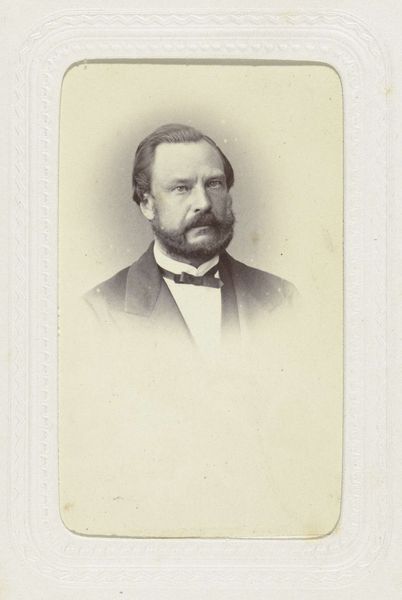
print, engraving
#
portrait
#
16_19th-century
# print
#
old engraving style
#
historical photography
#
engraving
#
realism
Dimensions: height 276 mm, width 181 mm
Copyright: Rijks Museum: Open Domain
Curator: Here we have Émilien Desmaisons' print, a portrait of Nicolas Villiaumé, dating from before 1861. Editor: He has such serious eyes! Almost accusing. There's a stoic weight to his gaze. A no-nonsense demeanor, framed by the careful beard and slightly askew bowtie. I feel like he judges my every thought, like I owe him something! Curator: That might be intentional. Desmaisons, as an engraver, often catered to a market that sought dignified, authoritative portrayals, particularly of public figures like Villiaumé, who served in the Court of Appeal and was a historian of the French Revolution of 1789. The portrait was probably commissioned to communicate something particular. Editor: And that 'something' reeks of ambition! The meticulously rendered jacket and the deliberate angle of his jaw. I suppose portraiture was then the Instagram filter of its time? A chance to craft an ideal persona? Curator: Precisely. The proliferation of portrait engravings democratized representation to some extent, but it also reinforced hierarchies and status. Think about where this image might circulate—bound in books, displayed in offices...each impression subtly cementing Villiaumé's position in society. Editor: All achieved with impressive skill, of course! Look at the gradations of tone. The texture conjured by lines... it's a marvel of technical mastery. It's just... perhaps too controlled? Too concerned with projecting the perfect image, and honestly it makes me mistrust him immediately. Curator: Well, that distrust is interesting. It speaks to our contemporary skepticism of authority and curated image-making, things this portrait inadvertently prefigures. I wonder how audiences might have reacted in the mid-19th century, when print media still held a great power and novelty. Editor: I suppose my initial feeling about it being judgmental makes perfect sense when considered in this context. Maybe I would be more impressed, if I lived during the French Revolution... Curator: Perhaps. Thanks for adding this touch of lived, intuitive experience, and showing how time can bring new meanings. Editor: Anytime, seeing him as someone ambitious reminds me to embrace that part of myself. Even if a stuffy French historian isn’t someone to emulate *too* closely.
Comments
No comments
Be the first to comment and join the conversation on the ultimate creative platform.
